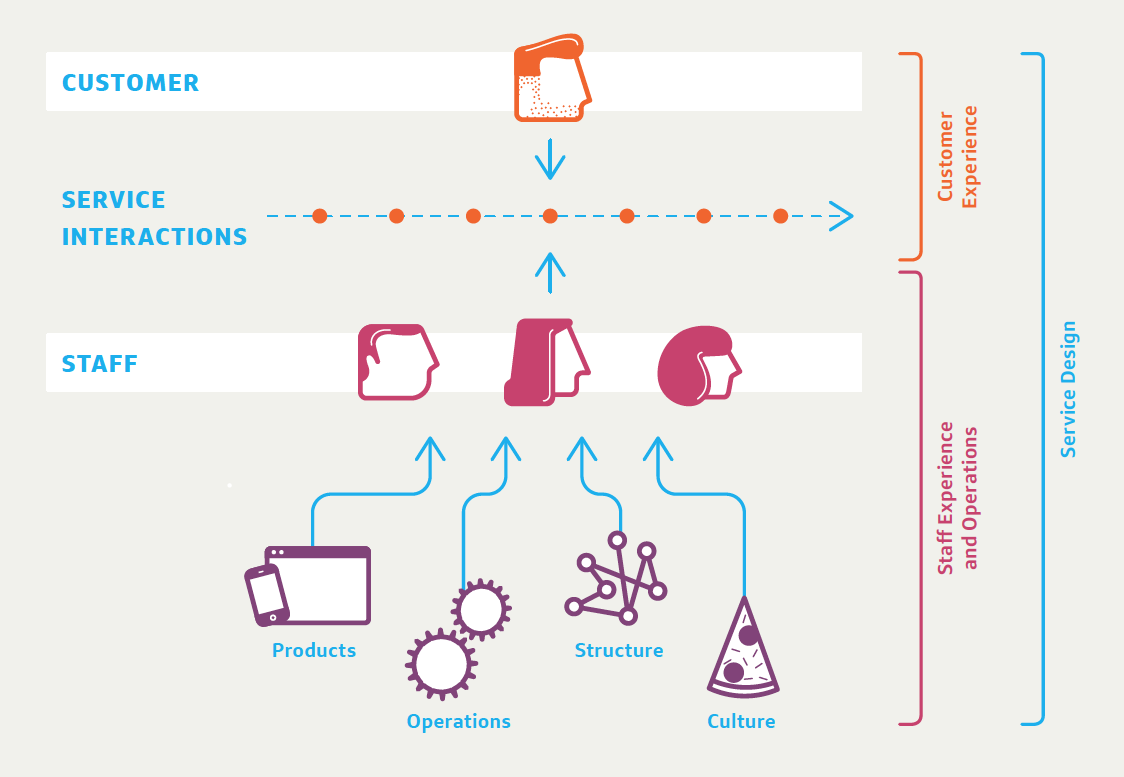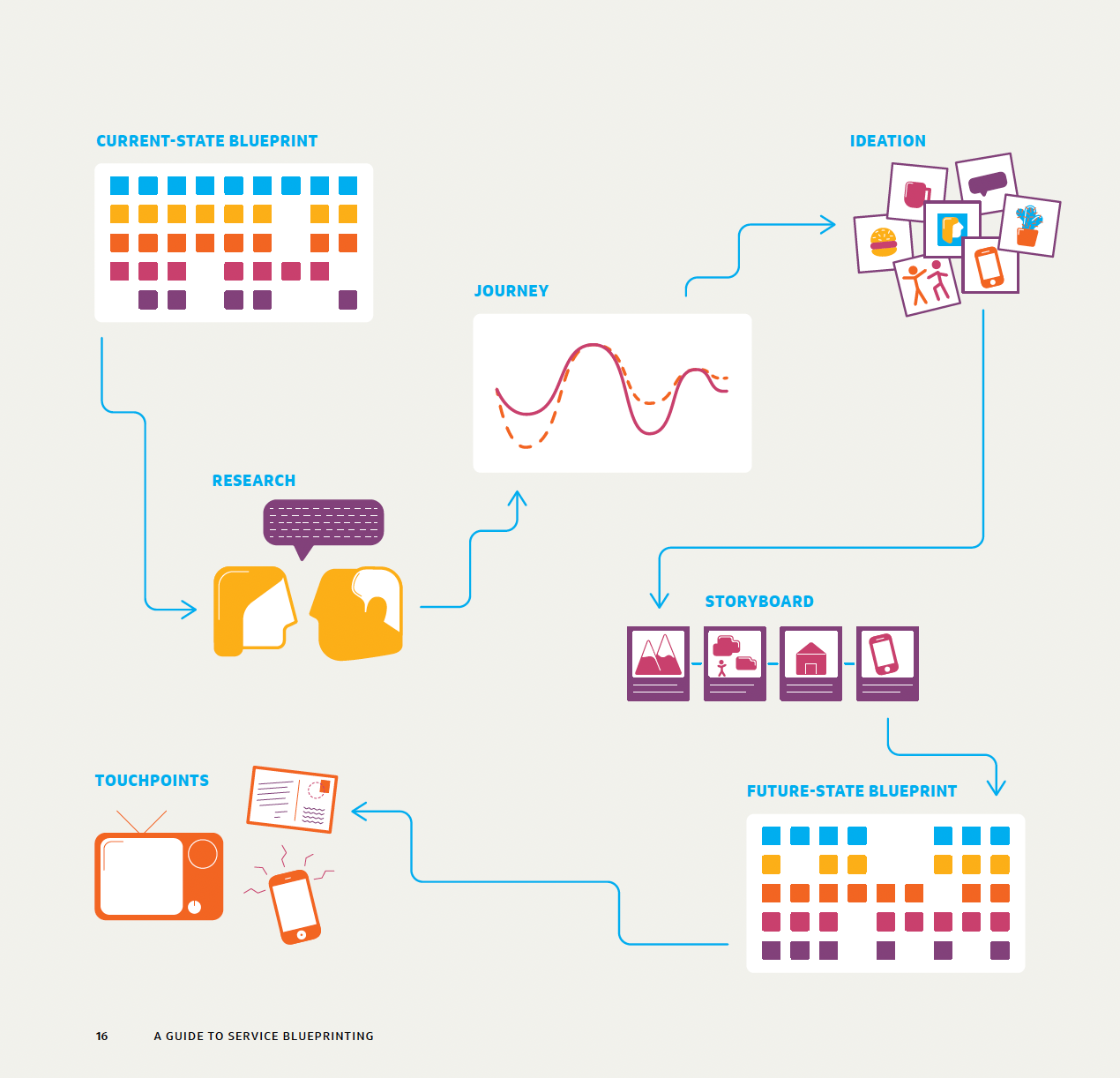Bridging Gaps for International Students through Service Design
The global landscape of higher education is evolving rapidly, with international students flocking to the United Kingdom in pursuit of academic excellence and cultural enrichment. Although changes to the socio-political context regarding international students is bringing heightened uncertainty, there continues to be an enduring cluster of challenges for students, universities, and the broader community. In this thought leadership piece, we delve into the multifaceted challenges faced by all parties involved and explore innovative solutions through the lenses of design thinking and service design.
Introduction
Data from Study In UK shows us that there has been a significant and steady increase in the number of students coming from overseas to study at UK universities over the past 10 years, currently peaking at around 650,00, of which around a third are from China and India alone. This is despite the fact that often fees for international students are around three times the levels that UK-based students are obliged to pay.
We’ve been working with international students from multiple organisations, including Imperial College, Ravensbourne University, University of Stirling and University of Gloucestershire. From these various representative groups we’ve heard a broad array of positive messages about their experiences studying at UK Universities. However, there have also been some challenging situations alongside. Most notably, elements relating to arrival and settling in sees international students at a great disadvantage compared to UK students, as often the best accommodation options have already been filled and also the reality that international students bring dependants with them from their home countries, which necessitates them needing accommodation to provide for more than themselves. This is often leading to overseas students having to pay for expensive AirBnB or equivalent variations of non-student accommodation, which then has knock on impacts on finances and the need for supplementary work.
The 2023 National Student Accommodation survey showed that 63% of students struggle to find the money to pay accommodation costs and two in five have considered dropping out due to the situation.
On average, approximately 20-30% of our first-year students opt for accommodation provided by the university, either through university-owned properties or leased options. Consequently, only those who are among the first to select this accommodation will secure a spot, leaving the majority of students facing challenges in finding suitable housing.

Challenges faced by International Students
Cultural Integration and Well-being
International students often find themselves grappling with the complexities of cultural assimilation, potentially leading to feelings of isolation and stress. Navigating a new academic environment, social norms, and an unfamiliar healthcare system can significantly impact their overall well-being.
Academic Support and Accessibility
The diverse educational backgrounds and learning styles of international students necessitate tailored academic support. Language barriers, differences in teaching methods, and varying levels of preparedness for coursework pose challenges that may hinder academic success.
Financial Strain
The financial burden of studying abroad is a substantial challenge for international students. Tuition fees, accommodation costs, and living expenses can become overwhelming, potentially affecting mental health and academic performance.
Challenges faced by UK Universities
Adapting Curriculum and Teaching Methods
Diverse cohorts require adaptable and inclusive teaching approaches. The challenge lies in tailoring curricula to accommodate varying educational backgrounds while fostering an environment that promotes cross-cultural understanding and collaboration.
Creating Inclusive Support Systems
Developing support systems that address the unique needs of international students is essential. Universities must go beyond traditional support structures to provide inclusive mental health services, academic guidance, and community-building initiatives.
Building Sustainable Relationships
Maintaining positive relationships with international students throughout their academic journey and beyond is crucial. Universities need to establish mechanisms for ongoing engagement, ensuring a sense of belonging that extends beyond the academic realm.
Challenges Faced by the Broader Community
Social Integration and Diversity
The integration of international students into local communities is a shared responsibility. Challenges arise when cultural divides persist, hindering the creation of inclusive spaces where diversity is celebrated.
Economic Impact and Opportunities
The economic benefits of hosting international students are vast, but ensuring that these benefits are equitably distributed within the community can be a challenge. Local businesses, housing markets, and employment opportunities must adapt to the changing demographic landscape.
Managing Expectations and Perceptions
Effective communication and managing expectations are pivotal in fostering positive perceptions of international students within the broader community. Misconceptions can lead to tensions and hinder the creation of a harmonious multicultural society.
How we can use design thinking and service design
Service design and design thinking are holistic approaches aimed at enhancing the quality and effectiveness of services by prioritising user-centric solutions, for both customers and staff, and fostering innovation. At its core, service design involves the end-to-end design and improvement of services, considering every touchpoint in the customer journey. This methodology emphasises understanding the needs, preferences, and experiences of users to create seamless and meaningful interactions. Design thinking, on the other hand, is a problem-solving approach that encourages empathy, ideation, and iteration. It involves a human-centred mindset, where designers collaborate with diverse stakeholders to explore and prototype solutions iteratively.

The principles of service design and design thinking share common ground, focusing on empathy, collaboration, iteration, and a deep understanding of user needs. These methodologies promote cross-functional teamwork, breaking down silos to encourage diverse perspectives. By emphasising empathy, designers can uncover latent user needs and preferences, leading to solutions that genuinely resonate with the target audience. Iterative prototyping allows for quick testing and refinement of ideas, reducing the risk of developing services or products that may not meet user expectations. Ultimately, the benefits of service design and design thinking include improved user satisfaction, increased innovation, and a more agile and adaptive approach to addressing complex challenges in a rapidly changing business landscape.
Successfully addressing the challenges faced by international students at UK universities requires a holistic and innovative approach. By embracing the principles of design thinking and service design, universities can transform these challenges into opportunities for growth, collaboration, and cultural enrichment. In doing so, they not only enhance the educational experience for international students but also contribute to building a more inclusive, diverse, and harmonious society.
Navigating the challenges of studying abroad encompasses more than just academic pursuits; it involves acclimatising to a new culture, finding suitable accommodation, and establishing a vibrant social life.
The diagram below from “A guide to service blueprinting” showcases what you need to do in order to create a current state blueprint and future state blueprint of your services. The current state blueprint showcases all of your existing operational experience and experience processes, pain points and cross-silo understanding of an existing service. Then in order to create your new future blueprint you must conduct research, create journey maps, ideate with your team, storyboard and put it all into a new map which will showcase where you want to get to and operational prototyping and development that may be required.

"How might we" address these challenges
We encourage you to explore the framing of the following multifaceted aspects of an international student’s journey. Applying the framing of these in a context of “how might these situations be addressed using service design approaches?” We will share some of our own thoughts and ideas across our social channels and in future blogs, but would love to hear ideas from the community so do share with us @6bythree.
- Accommodation Challenges and Innovative Solutions
- Academic Journey and Learning Support
- Student-to-Staff Ratio and Personalised Attention
- Social Life and Combating Isolation
- Return on Investment (RoI) for Overseas Students
- Co-creation of Support Systems
- Adaptive Curriculum Design
- Develop Inclusive Community Engagements
- Enhancing Financial Aid and Scholarships
- Introduce Continuous Feedback Loops
- Adapting to changes in legislation
Conclusion
In addressing the challenges faced by international students in the UK, a comprehensive approach that encompasses accommodation, academic support, social engagement, and RoI considerations is essential.
By leveraging design thinking principles, universities can foster innovation, collaboration, and inclusivity, creating an environment where international students thrive academically, socially, and personally.
Embracing these recommendations will not only enhance the overall student experience but also contribute positively to the global reputation and attractiveness of UK universities.
How might your organisation adopt service design and design thinking principles and approaches to bring benefit to international students especially, but also to all your student communities?

